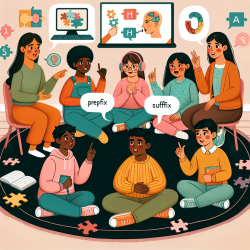In the realm of speech-language pathology, making data-driven decisions is crucial for fostering positive outcomes for children. As professionals dedicated to evidence-based practice, we can draw valuable insights from interdisciplinary research. A compelling example is the study "Using a moot to develop students’ understanding of human cloning and statutory interpretation" by Pattinson and Kind, which offers a novel approach to enhancing educational outcomes through legal role-playing activities.
This research focused on a three-year project where 16- to 17-year-old students in the UK participated in a Supreme Court moot to explore the legal and ethical dimensions of human cloning. The findings revealed that such activities not only deepened students' understanding of complex scientific concepts but also significantly boosted their self-confidence and argumentation skills.
So, how can we, as speech-language pathologists, apply these findings to our practice? Here are a few actionable steps:
- Incorporate Role-Playing Activities: Just as the students in the study benefited from mooting, incorporating role-playing activities in therapy sessions can enhance children's engagement and understanding. For example, children can take on roles in scenarios that require them to use specific speech and language skills, thereby making the learning process more interactive and memorable.
- Focus on Interdisciplinary Learning: The research highlights the importance of integrating different fields of study. In speech-language pathology, we can collaborate with educators, psychologists, and other professionals to create comprehensive intervention plans that address the multifaceted needs of children.
- Boost Self-Confidence through Public Speaking: The study found that participating in moots significantly improved students' public speaking skills. Similarly, we can incorporate public speaking exercises in our sessions to help children develop confidence in their communication abilities. Activities such as group discussions, presentations, and storytelling can be highly effective.
- Encourage Critical Thinking: The legal reasoning required in mooting encourages critical thinking. We can foster this skill in children by presenting them with problem-solving tasks that require them to think critically about how to use their speech and language skills effectively.
By integrating these strategies into our practice, we can create a more engaging and effective learning environment for children. Moreover, this interdisciplinary approach not only enriches our methods but also opens up new avenues for research and collaboration.
To read the original research paper, please follow this link: Using a moot to develop students’ understanding of human cloning and statutory interpretation.










